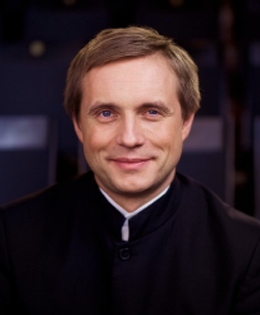Researchers find something explosive in Beethoven's DNA
Hair locks analyzed
Researchers find something explosive in Beethoven's DNA
Researchers have found out more about the composer's health - and uncovered a possible fling in the lineage.
An international team of researchers with German participation has used DNA analyzes to gain new insights into the health of composer Ludwig van Beethoven, who struggled with severe physical illnesses throughout his life. As reported by the Bonn University Hospital involved in the investigations, the Bonn Beethoven House and the Leipzig Max Planck Institute for Evolutionary Anthropology, genetic risk factors for liver disease and evidence of hepatitis B infection were discovered.
From the DNA tests of various hair samples, however, no genetic cause could be determined for Beethoven's notorious deafness and the gastrointestinal problems that tormented him, as the institutions announced. The composer, who lived from 1770 to 1827, had gradually lost his ability to hear by his mid to late 20s and was effectively deaf around nine years before his death. It is also known that he suffered from severe chronic gastrointestinal problems and liver disease.
High alcohol consumption
According to the Bonn and Leipzig scientists, a severe liver disease is also the cause of Beethoven's death at the age of only 56. Liver cirrhosis has long been considered the most likely cause. It is known from historical sources that he drank alcohol regularly and over a longer period of time in amounts that are harmful from today's perspective. However, there is a lack of clarity about Beethoven's state of health and cause of death, because his doctor's notes have never been found.
The researchers, whose study was published in the journal "Current Biology", see this alcohol consumption in connection with the genetic risk factors for liver disease they discovered as a possible explanation for his liver cirrhosis. The hepatitis B infection, which, according to their analyses, Beethoven contracted in the months before his death at the latest, could have made the situation significantly worse.
They suspect that this infection, combined with alcohol consumption and genetic predisposition, may have led to progressive liver failure and ultimately to the death of the world-famous artist. "We cannot say with certainty what Beethoven died of, but we can at least now prove the existence of a significant hereditary risk of liver cirrhosis and infection with the hepatitis B virus," explained Johannes Krause from the Max Planck Institute in Leipzig .
Some hair samples did not belong to the composer
The investigations are based on DNA analyzes of a total of eight locks of hair from public and private collections that are attributed to the composer. However, at least two of them do not come from Beethoven - including the famous "Hiller lock", which a 15-year-old musician named Ferdinand Hiller allegedly once cut from Beethoven's head. It had been analyzed earlier and had provided evidence of possible lead poisoning. However, it does come from a woman.
The research team, which also included experts from institutions in the USA, Great Britain and Belgium, identified five hair samples as authentic and used them for further investigations. They are all from the same man. A comparison also revealed a close proximity to the DNA profile of people from North Rhine-Westphalia. This coincides with the reliable information on the origin of Beethoven's ancestors.
infidelity in the family?
The experts also discovered a small surprise when they analyzed the DNA profile of Beethoven's living descendants in Belgium. Their Y chromosomes do not match those from the five hair samples. According to the scientists, this can probably be explained by at least one extramarital affair in Beethoven's direct paternal line of descent. However, the timing is unclear.
A period of time can only roughly be given for this, which extends from about the year 1572 to the conception of the composer almost 200 years later. This is interesting because in the absence of a baptismal entry, doubts about the paternity of Beethoven's father were already expressed earlier. However, the results that have now been published do not allow any conclusions to be drawn as to the generation before Beethoven's birth in which the infidelity happened.








 Vasily
Petrenko (UK)
Vasily
Petrenko (UK)
 Sándor
Gyüdi
Sándor
Gyüdi  Thomas Sanderling (UK)
Thomas Sanderling (UK)
 Mark Kadin
Mark Kadin  Hermann Bäumer (DE)
Hermann Bäumer (DE)







